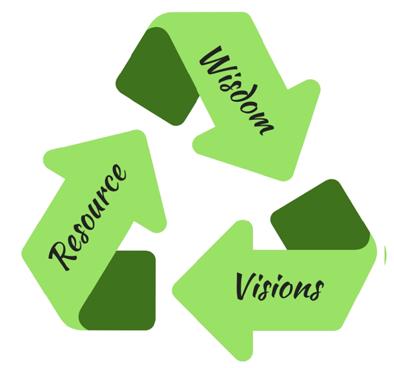
1 minute read
Tool 1: The ReWi coaching framework
TIME AND PLACE
TARGET GROUP: WHO IS THE COACHING FOR?
Advertisement
Tell who the coaching is primarily for. Also point out who it is not for, if applicable.
BENEFITS
Summarize the benefits of the coaching.
• For example: Improving work life skills for the future (problem solving skills, creativity, interaction skills, empathy). • Learn to recognize and develop operations through circular economic thinking. • Become encouraged by the effectiveness of entrepreneurship to create more sustainable lifestyles. • Inspiring activities and shared learning.
CONTENT AND STAGES
What are the themes and contents of the coaching? What can you promise young people?
GOALS AND PRINCIPLES
INSTRUCTIONS AND SCHEDULE AND POSSIBLE COSTS
Tell about the duration and schedule. What resources are required from participants? Which activities require signing up for?
COACHES
Finding coaches and what know-how should be developed.
COMMUNICATION CHANNELS AND MARKETING STORY / DESCRIPTION OF THE TRAINING
Tell how the coaching will work. What is the story behind it?
References. Let a former participant tell what it meant to them
ELIMINATING RISKS
Explain why your product is a safe choice; impress with quality, certificates, experiences or a guarantee.
COOPERATION INTERFACES
Tell about possible cooperation with other parties. Who pays the coaches’ salaries? Transparency and openness are important.
Tool: ReWi Visions theme workshop
The following page presents a framework for gathering information, or more generally implementing the themes of sustainable lifestyle and circular economy into working life with youth groups. Organizers may leave out portions or change their lengths at their discretion based on time restrictions. Time can be saved by cutting out working methods or by allocating less time per portion.
The length of working hours depends on the organizer's goals for the workshop. An organizer may assume a conference manager's role or guide participants as one’s own self. An ideal number of participants is 12–16 persons. However, there have also been workshops with as many as thirty participants. The framework was used in the ReWi Visions preliminary assessment project to find out young people's opinions on topics that worry them and when looking at themes regarding solving these issues through working life.









